What Is ‘Snapping Hip’ Syndrome?
‘Snapping Hip’ Syndrome occurs when a dancer experiences popping, snapping, or cracking type sensations at the front or side of their hip. It typically occurs when bringing the leg into a developpé devant or à la seconde. This snapping of the hip is often pain-free at first, but over time, the tendon gets inflamed and starts to limit dance participation.
What Causes ‘Snapping Hip’ Syndrome? What Are Common Symptoms?
‘Snapping Hip’ Syndrome is caused by the rubbing of one of the hip tendons over the bony landmarks of the hip or pelvic bone during movement. The most common muscles that cause this snapping sensation are the Iliopsoas tendon and the Tensor Fascia Latae. This often occurs when there is an imbalance between the amount of turnout a dancer is using and the ability of the hip muscles to control that turnout range. As the dancer moves the hip into an extension, if the muscles cannot maintain the turnout they had when the feet were on the ground, they often lose that turnout as the leg moves higher, and this can be when the ‘snap’ occurs.
Common symptoms include:
- Musical noises in the hip when moving through extensions
- This may or may not be painful
- Pinching or pain at front of hip when it is fully flexed, with or without internal rotation of the hip
How Can Physiotherapy Help My ‘Snapping Hip’ Syndrome?
Your physiotherapist will perform a detailed assessment to determine which muscle is the cause of your snapping and how irritable (easily aggravated) it is. They will look at how you control your turnout during various dance exercises so that any technique errors contributing to your symptoms can be corrected. Based on this assessment, they may apply hands-on treatment such as soft tissue release and hip mobilizations to restore the optimal mechanics of your hip. Exercises will be given to help you improve the strength of your glutes and core, and to ensure you can properly control your full turnout throughout all ranges of the hip. They will also investigate whether there are any other underlying factors in the hip that are causing the snapping, which may warrant medical attention, such as femoral acetabular impingement (FAI) or a labral tear.
How Can Massage Therapy Help My ‘Snapping Hip’ Syndrome?
Massage therapy can help treat your snapping hip by addressing any tight and sore muscles in the hip, thigh, and lower back that may be contributing to your hip pain. Your registered massage therapist will communicate with your physiotherapist to ensure that both members of your team are working together to help you get back to your normal.
How Can Sports Medicine/Physiatry Help My ‘Snapping Hip’ Syndrome?
Your sports medicine physician can order imaging, such as an x-ray or MRI if there is suspicion of femoral acetabular impingement (FAI) or a labral tear, or an ultrasound to investigate the extent of inflammation or injury to the tendons in your hip. If needed, they can provide anti-inflammatory medication or creams, perform injections to help settle symptoms in the hip, and make referrals to an orthopedic surgeon if necessary, based on the findings of your imaging.
How Long Does It Take To For Me To Recover From My ‘Snapping Hip’ Syndrome?
The length of time for recovery from this injury depends on how irritable the hip tendon has become. Recovery can range anywhere from 6 weeks to 3 months, depending on the extent of inflammation in the hip tendon, and following the timelines of muscle strengthening. These musical noises in the hips are sometimes asymptomatic for many years before causing the dancer any pain, so it is important to address the factors causing the ‘Snapping Hip’ early before it becomes painful and limits dance participation.
What Are The Best Exercises To Help With My ‘Snapping Hip’ Syndrome Recovery?
The following are some of exercises you can use to recover from ‘Snapping Hip’ Syndrome. Please keep in mind that these exercises were designed as a place to start to address your symptoms. These exercises should not be performed or continued if they cause or increase your pain in any way. Using these exercises for self-management of your symptoms does not replace the value of being assessed by a Health Professional. If you find you need help, let a Strive Health Professional help you, book your time today!
What Can I Do To Treat A ‘Snapping Hip’ In The Studio?
- Avoid doing the things that aggravate your symptoms.
- e.g. you may need to lower the height of your extensions or reduce the range of your turnout temporarily, to reduce how often your hip snaps and allow your pain to settle down before building back into your regular hip ranges.
- Stop doing hip flexor stretches
- Especially if you have been doing these a lot and your hip is not getting better. Often times this is actually feeding into your pain, so by stopping this stretch you can make a big difference.
- Don’t force your turnout!
- Maintain neutral pelvis posture throughout all exercises.
Not Sure If Physiotherapy Is Right For You?
We are here to help! Call us at (416) 486-4776 to book a free 10-minute phone consultation with Grace Underwood, a Physiotherapist who is experienced with dance rehabilitation. She was a dancer like you and so she understands the unique needs of dancers. Schedule a time to chat with her to find out if Physiotherapy is right for you.

Written in 2021 by Danna Epstein Marcus, Registered Physiotherapist
Grace Underwood
BComp (Honours), MSc in Computing, MScPT
Registered Physiotherapist
Grace completed her Master of Science in Physical Therapy at the University of Toronto. Before physiotherapy school she obtained a Bachelor of Computing with a specialization in biomedical applications and a Master of Science in Computing from Queen’s University. After completing her physiotherapy education, she has completed courses in taping and dry needling. Grace is passionate about orthopaedic Physiotherapy and plans to continue her post-graduate education by pursuing courses in manual therapy, acupuncture, and sport physiotherapy.


